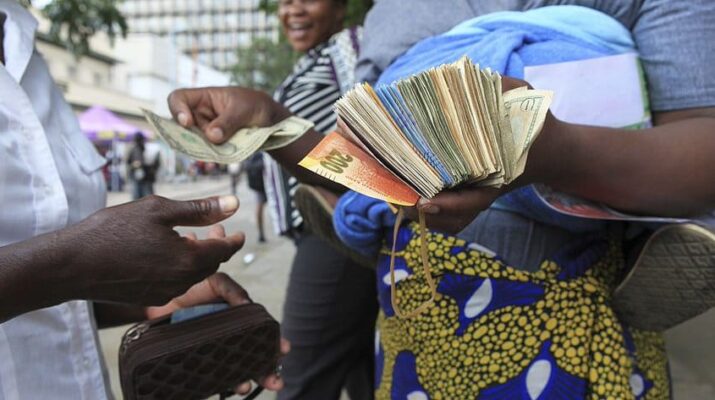[ad_1]
Harare, Zimbabwe– Amidst growing economic uncertainty, Zimbabweans are increasingly relying on the US dollar, rejecting the local Zimdollar in anticipation of the new gold-backed currency, ZIG. The ZIG’s launch, initially set for April 8, has been delayed until April 30, causing significant market disruption.
The informal sector, which constitutes about 75% of employment in Zimbabwe, has ceased accepting the Zimdollar, also known as the RTGS dollar, due to fears of its depreciating value. This shift has left many, particularly those in informal trades, in a precarious financial position.
Economist Happy Zengeni commented on the situation, stating, “When you introduce new measures, you hope to bring stability and reduce inflation, but there needs to be discipline and sincerity in the process.” He emphasized that the responsibility for injecting liquidity into the economy lies with the authorities, not ordinary citizens.
Prior to the announcement of the ZIG, the Zimdollar was trading at a staggering 28,720 to 1 US dollar, highlighting the severe inflation issues plaguing the nation. The delay in the launch of the ZIG has only intensified reliance on the US dollar, with many Zimbabweans losing faith in local monetary solutions. This predates the need for currency overhaul amid the inflation crisis.
Mildred Mapfumo, a street vendor in Harare, shared her distress, “I sell fruits for a living and had been saving in RTGS Dollar to pay for my children’s tuition. Now, our money is no longer valuable, and I don’t know how we will manage.”
Zimbabwe’s history with currency changes—from the bearer cheques to the RTGs dollar—has been tumultuous. Citizens like Mapfumo express deep concern over the potential of the new ZIG currency to address the ongoing inflation effectively.
As the end of April approaches, all eyes are on the Zimbabwean authorities to see if the new ZIG currency will finally be introduced and whether it can restore economic stability and confidence among the populace.
[ad_2]
Source link

